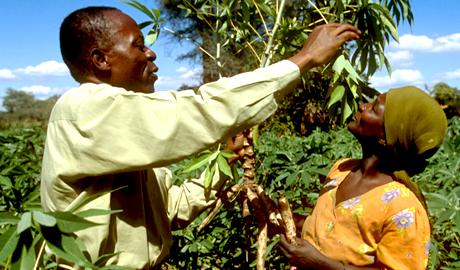
| Name: | A Situational Analysis on the Gender Gaps in the Agricultural Sector |
| Year: | 2007 |
| Client: | Zimbabwe Women’s Resource Centre and Network (ZWRCN) |
| Country: | Zimbabwe |
| Background: | Women are major contributors to the economy, both through the remunerative work on farms and through unpaid work they traditionally render at home and in the community. Yet in many countries, they are excluded from access to resources, essential services (extension services) and decision-making. Although there is overwhelming evidence that this is the case in many societies, this has not been well documented. It is against this background that ZWRCN identified the need to undertake a situational analysis for the agricultural sector to identify the major gender gaps in it.ZWRCN implemented a 3-year Gender Budgeting and Women’s Empowerment programme starting in 2006. During the years ZWRCN undertook a number of activities that contributed to the creation of awareness among government technocrats, Members of Parliament (MPs), Civil Society Organisations (CSOs) and development partners to this concept and its importance in promoting gender equality. Even though this first initiative was successful in creating awareness on the necessity of gender budgeting, serious capacity gaps of key stakeholders (Members of Parliament, technocrats from the Ministry of Finance and sectoral ministries; local authorities civil society organizations, researchers; and the newly created Ministry of Women Affairs Gender and Community Development (MWAGCD)) to advocate and lobby for gender sensitive budgets existed. |
| Objectives: | ZWRCN was implementing a 3-year Gender Budgeting and Women’s Empowerment programme with the aim to reduce gender inequalities and promote gender sensitive development policies for poverty reduction and improvement of the welfare of women, men, girls and boys in Zimbabwe. The objective of this exercise was to undertake a situational analysis with the aim of analysing and documenting the gender variables in the agricultural sector. The analysis identified women related agricultural challenges and needs and identified stakeholders and institutional framework in line with implementation of ZWRCN, gender budgeting and women empowerment plan of action in the agricultural sector. This information would guide and inform ZWRCN’s 3-year programme on Gender Budgeting and Women’s Empowerment during the implementation process. |
| Activities | The team carried out the following activities:Review and analyse documents related to existing agricultural policies and researches available on gender and agriculture in ZimbabweAnalyse from a gender perspective the implementation of the agricultural sector policies with regards to access and use of extension services and other agricultural schemesIdentification of the women-related agricultural challenges and needs, gender analysis to identify disparities in division of labour among women and men, access to and control over resources, practical and strategic needs of women and opportunities and constraints from social economic political and legal environmentAnalysis of the extent to which the gender gaps are addressed in the existing agricultural policiesEvaluation of the institutional mechanisms for the implementation of the agricultural policiesAnalysis of the trend of public resources channelled towards women empowerment in the agricultural sectorIdentify stakeholders and institutional framework in line with implementation of ZWRCN’s Gender Budgeting and Women’s Empowerment Plan of Action in the agricultural sectorOrganize one workshop to validate the findings of the research on the gender considerations in the agricultural sectorReference should be made to the international, regional and national commitments towards gender equality and women’s empowerment that Zimbabwe is signatory to. Use available sources of (written) information at ZWRCN |
| Special recognition: | |
| Publication |


